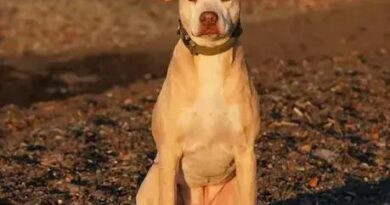What is Paw-sitive habits
Understanding Paw-sitive Habits
Paw-sitive habits refer to the beneficial routines and behaviors that enhance the well-being of dogs and their owners. These habits are essential for fostering a healthy, happy relationship between pets and their humans. By incorporating these practices into daily life, pet owners can ensure their furry friends thrive both physically and emotionally.
The Importance of Routine
Establishing a consistent routine is one of the most significant paw-sitive habits for dogs. Dogs are creatures of habit and thrive on predictability. Regular feeding times, walks, and play sessions help dogs feel secure and reduce anxiety. A well-structured day can lead to better behavior and a more relaxed pet.
Physical Exercise as a Paw-sitive Habit
Regular physical exercise is crucial for a dog’s health. Engaging in daily walks, runs, or playtime not only keeps dogs physically fit but also stimulates their minds. Exercise helps prevent obesity, reduces behavioral issues, and strengthens the bond between the dog and its owner. Incorporating various activities can keep the routine exciting and enjoyable.
Socialization: A Key Component
Socialization is another essential paw-sitive habit that contributes to a dog’s overall well-being. Exposing dogs to different environments, people, and other animals helps them develop confidence and reduces fear-based behaviors. Regular interactions with other dogs can enhance their social skills and make them more adaptable to various situations.
Positive Reinforcement Training
Training using positive reinforcement is a fundamental paw-sitive habit that encourages good behavior in dogs. This method involves rewarding desired behaviors with treats, praise, or playtime, making it more likely that the dog will repeat those behaviors. Positive reinforcement not only strengthens the bond between the dog and owner but also creates a more enjoyable training experience.
Healthy Nutrition Choices
Providing a balanced and nutritious diet is a vital aspect of paw-sitive habits. Pet owners should prioritize high-quality dog food that meets their pet’s specific needs based on age, size, and activity level. Proper nutrition supports a dog’s overall health, energy levels, and longevity, making it a cornerstone of responsible pet ownership.
Regular Veterinary Check-ups
Routine veterinary visits are an essential paw-sitive habit that ensures a dog’s health is monitored consistently. Regular check-ups allow for early detection of potential health issues and ensure that vaccinations and preventive care are up to date. This proactive approach to health care can significantly enhance a dog’s quality of life.
Grooming and Hygiene Practices
Maintaining proper grooming and hygiene is another critical paw-sitive habit. Regular brushing, bathing, and nail trimming not only keep dogs looking their best but also contribute to their overall health. Grooming helps prevent skin issues, matting, and dental problems, making it an essential part of a dog’s care routine.
Creating a Safe Environment
A safe and comfortable living environment is fundamental to a dog’s well-being. Pet owners should ensure their homes are free from hazards and provide a designated space for their dogs to relax. This includes providing comfortable bedding, toys, and access to fresh water, all of which contribute to a positive living experience for pets.
Quality Time and Bonding
Finally, spending quality time with dogs is perhaps the most rewarding paw-sitive habit. Engaging in activities that both the owner and the dog enjoy strengthens their bond and enhances the dog’s emotional well-being. Whether it’s playing fetch, going for a hike, or simply cuddling on the couch, these moments are invaluable for nurturing a loving relationship.




